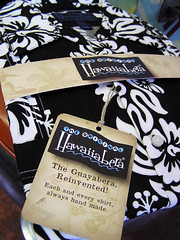
Afrikaans - Geseknde Kersfees en 'n gelukkige nuwe jaar
Argentine - Feliz Navidad y Feliz Año Nuevo
Bohemian - Vesele Vanoce
Brazilian - Boas Festas e Feliz Ano Novo
Bulgarian - Vesela Koleda i chestita nova godina!
Catalan - Bon Nadal i un Bon Any Nou!
Chinese - Sing Dan Fae Lok. Gung Hai Fat Choi (Cantonese)
Chinese - Shen Dan Kuai Le Xin Nian Yu Kuai (Mandarin)
Chinese - Shen tan jie kuai le. Hsin Nien Kuaile
Croatian - Sretan Bozic
Czech - Stastne a vesele vanoce a stastny novy rok!
Danish - Glaedelig Jul og godt nyter
Dutch - Vrolijk Kerstfeest en een Gelukkig Nieuw Jaar
Dutch - Prettige kerstdagen en een gelukkig nieuw jaar
English - Merry Christmas and a Happy New Year
Eskimo - (inupik) Jutdlime pivdluarit ukiortame pivdluaritlo!
Esperanto - Felican Kristnaskon kaj Bonan Novjaron!
Estonian - Rõõmusaid jõulupühi ja head uut aastat!
Faeroese - Gledhilig jol og eydnurikt nyggjar!
Filipinos - Maligayang Pasko
Finnish - Hyvää joulua ja onnellista uutta vuotta!
Flemish - Zalig Kerstfeest en Gelukkig nieuw jaar
French - Joyeux Noel et Bonne Année!
Scots Gaelic - Nollaig chridheil agus Bliadhna mhath yr!
Galician - Bo Nadal
German - Frohe Weihnachten und ein gl|ckliches Neues Jahr!
Greek - Hronia polla kai eytyhismenos o kainourios hronos
Greek - Hronia polla ke eftihismenos o kenourios hronos
Hausa - Barka da Kirsimatikuma Barka da Sabuwar Shekara!
Hawaian - Mele Kalikimaka ame Hauoli Makahiki Hou!
Hungarian - Kellemes karacsonyi uennepeket es boldog ujevet!
Icelandic - Gledhileg jsl og farsflt komandi ar!
Indonesian - Selamat Hari Natal dan Selamat Tahun Baru!
Iraqi - Idah Saidan Wa Sanah Jadidah
Irish Gaelic - Nollaig Shona duit
Irish Gaelic - Nollaig Shona
Irish Gaelic - Nollaig faoi shean agus faoi shonas duit agus bliain nua faoi mhaise dhuit!
Italian - Buon Natale e Felice Anno Nuovo!
Japanese - Meri Kurisumasu soshite Akemashite Omedeto!
Latin - Natale hilare et Annum Faustum!
Latvian - Priecigus Ziemsvetkus un Laimigu Jaungadu!
Lithuanian - Linksmu Kaledu
Maltese - Nixtieklek Milied tajjeb u is-sena t-tabja!
Modern Greek - Kala Christougenna kai evtichismenos o kainourios chronos!
Norwegian - God Jul Og Godt Nytt Aar
Pennsylvania German - En frehlicher Grischtdaag un en hallich Nei Yaahr!
Polish - Vesowe Boze Narodzenie
Polish - Wesolych Swiat i Szczesliwego Nowego Roku
Portuguese - Boas Festas
Portuguese - Feliz Natal e um Prospero Ano Novo
Romanian - Craciun fericit si un an nou fericit
Russian - S nastupaiushchim Novym godom i s Rozhdestvom Khristovym!
Romanche - (sursilvan dialect): Legreivlas fiastas da Nadal e bien niev onn!
Serbian - Hristos se rodi
Slovakian - Sretan Bozic or Vesele vianoce
Slovak - Vesele Vianoce i na zdravie v novom roku!
Slovenian - Vesele bozicne praznike in srecno novo leto
Spanish - Feliz Navidad y Próspero Año Nuevo
Swedish - God Jul Och Ett Gott Nytt Ar
Thai - Suk san wan Christmas
Thai - Suk san wan pee mai - Happy New Year
Trukeese - (Micronesian) Neekiriisimas annim oo iyer seefe feyiyeech!
Turkish - Noeliniz kutlu olsun ve yeni yilinis kutlu olsun!
Turkish - Noeliniz Ve Yeni Yiliniz Kutlu Olsun
Ukrainian - Srozhdestvom Kristovym
Ukrainan - Z novym rokom i s rizdvom Hrystovym!
Ukrainan - Khrystos Rodevsia
Vietnamese - Chuc mung nam moi va Giang Sinh vui ve
Welsh - Nadolig Llawen a Blwyddyn Newydd Da!"
Yoruba - E ku odun, e ku iye'dun!



























































